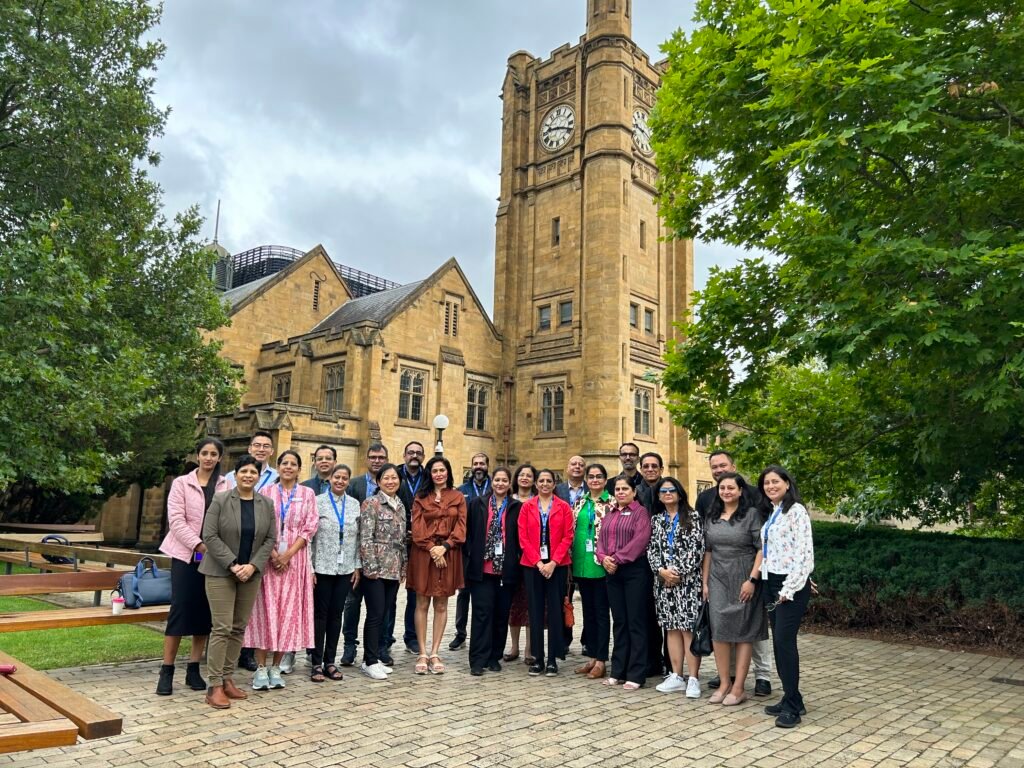University of Melbourne’s commitment to SDGs earns it 9 spot in global sustainability rankings
 7th December 2023: The University of Melbourne’s significant efforts to tackle the world’s greatest environmental and social issues have seen it skyrocket an impressive 42 places to be ranked ninth best in the world in the latest Quacquarelli Symonds (QS) Sustainability Rankings.
7th December 2023: The University of Melbourne’s significant efforts to tackle the world’s greatest environmental and social issues have seen it skyrocket an impressive 42 places to be ranked ninth best in the world in the latest Quacquarelli Symonds (QS) Sustainability Rankings.
This follows the QS University Rankings in June, where the University of Melbourne was recognised as 14th best university in the world. Increasingly, Indian families are choosing to send their children to study at the University, also ranked #8 in the world for employability of graduates, with Indian students now making up the second largest cohort of international students at its campuses in Australia.
The QS Sustainability Rankings is determined by performance in nine areas within three broad categories – Environmental Impact, Social Impact and Governance.
The University of Melbourne significantly improved its performance in this year’s QS rankings, earning the number one ranking in the Environmental Sustainability area and a number three ranking in the Impact of Education area.
These results reflect significant programs of incredible and enduring global impact, including:
- Launching the Melbourne Biodiversity Institute and hosting the new Biodiversity Council (Australia based).
- Launching the University’s platform on Sustainability, Climate, Energy and Environment, One Planet.
- Building on the Melbourne Climate Futures focus, focusing on SDG progress in Asia and the Pacific.
- Designing-in sustainability as a touchstone within the University’s Education Strategy. Preparing students as graduates for a sustainable future, who will develop an understanding of the impact of and interplay between biodiversity, environmental, and human systems.
- Increasing the number of sustainability-focused leadership roles and subject-matter expert roles within Faculty teams, and within professional staff.
- Delivering empowerment programs for disadvantaged students, including the Schools Engagement Program in India (Goal 4, 5).
- Significant important water and waste management programs in India* (SDG 6).
University of Melbourne Vice-Chancellor Professor Duncan Maskell said the latest QS Sustainability Rankings reflect the collaborative efforts of many people across the University.
“University of Melbourne researchers are some of the world’s leading experts on environmental, climate and biodiversity challenges that threaten our and future generations,” Professor Maskell said.
“By harnessing this expertise and the collective resources at Melbourne Climate Futures, the Melbourne Energy Institute and the Melbourne Biodiversity Institute, the University is determined to be a leader in developing solutions to these global challenges.
“I am very pleased that the University’s sustainability credentials have been recognised by QS, and our goal is to make an even greater contribution to research and education in sustainability, environment and climate, and social impact.”
The rankings of higher education analytics firm Quacquarelli Symonds are regarded among the most-widely read university rankings in the world.
Further information:
- University of Melbourne’s Sustainability Plan 2030
- One Planet
- Melbourne Climate Futures
- Indo-Pacific Climate Hub (INPACC) (including Indian partners)
- Melbourne Biodiversity Institute
- Advancing Students and Education Strategy
* Water management programs in India:
- In 2023, Professor Meenakshi Arora was supported by the University’s Australia India Institute through securing a Unnati Grant to establish a water quality baseline in rural areas of West Bengal India through field campaigns and to develop a framework and roadmap for low cost water treatment methods for safe drinking water. The project is being delivered in collaboration with IIT Kharagpur and the Public Health Department.
- Also in 2023, the Department of Infrastructure Engineering led a project under the Australia-India Strategic Research Fund scheme, worth AUD$950,000 for research on ‘Artificial Intelligence and Machine Learning in Earth Observation for Forest Characterization and water conservation,’ with the Indian Institute of Technology, Kanpur.
